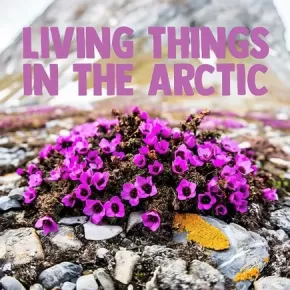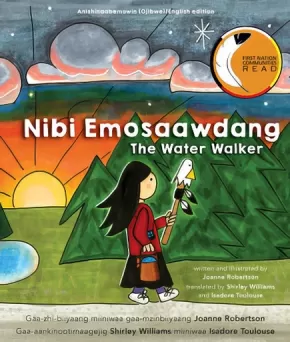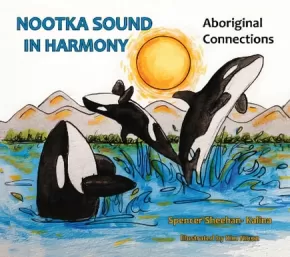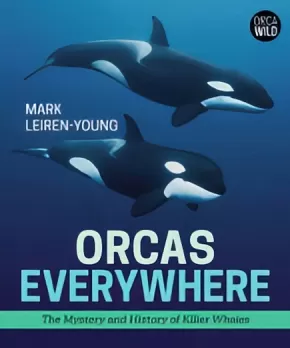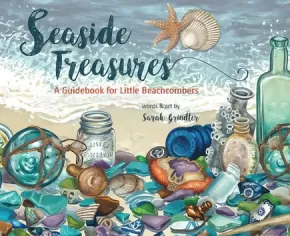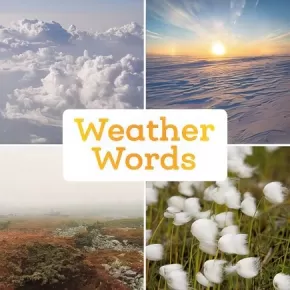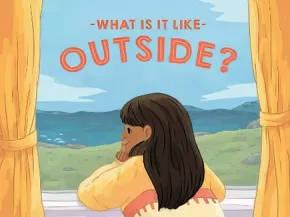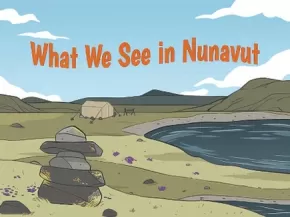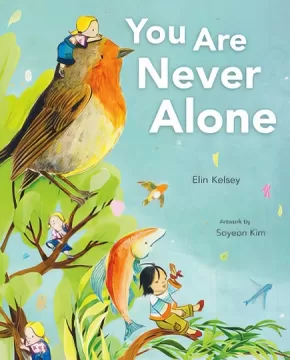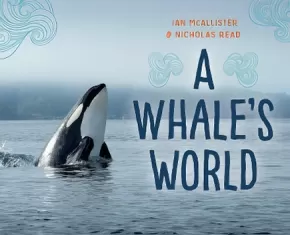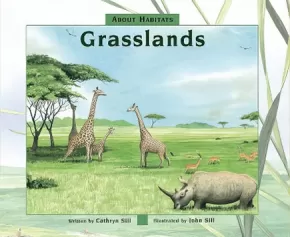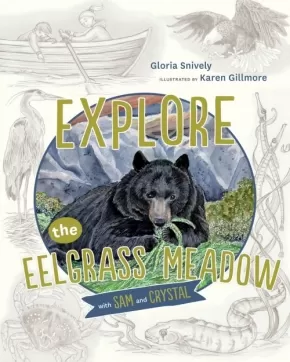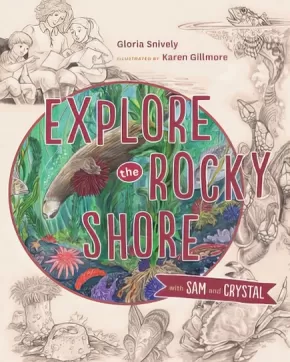
Environment
106
-
120
of
175 Results;
Sort By
Go To
of 12
Living Things in the Arctic - Nunavummi Reading Series
$7.95
Format:
Paperback
ISBN / Barcode: 9780228702313
Synopsis:
Synopsis:
Learn about the plants and animals that live in the Arctic.
This book features some of the living things in the North, such as ravens and Arctic willow.
Educator & Series Information
This book is part of the Nunavummi Reading Series, a Nunavut-developed series that supports literacy learning while teaching readers about the people, traditions, and environment of the Canadian Arctic. It is a Level 4 book in the series.
Nunavummi Reading Series books have also been officially levelled using the Fountas & Pinnell Text Level Gradient™ Levelling System. This book's F&P Level is A.
Curriculum Connections: Language and literacy; Environmental awareness; Life systems
Recommended for ages 3-6.
Additional Information
12 pages | 7.00" x 7.00"
Nibi Emosaawdang / The Water Walker
$14.95
Artists:
Format:
Paperback
Text Content Territories:
Indigenous Canadian; First Nations; Anishinaabeg; Ojibway;
ISBN / Barcode: 9781772601008
Synopsis:
Synopsis:
The dual language edition, in Anishinaabemowin (Ojibwe) and English, of the award-winning story of a determined Ojibwe Nokomis (Grandmother) Josephine-ba Mandamin and her great love for Nibi (water). Nokomis walked to raise awareness of our need to protect Nibi for future generations, and for all life on the planet. She, along with other women, men, and youth, have walked around all the Great Lakes from the four salt waters, or oceans, to Lake Superior. The walks are full of challenges, and by her example Josephine-ba invites us all to take up our responsibility to protect our water, the giver of life, and to protect our planet for all generations.
Educator Information
This is the dual-language edition, in Anishinaabemowin (Ojibwe) and English, of The Water Walker.
Recommended for ages 6-9.
This dual-language edition contains a note on the book's translation into Anishinaabemowin by Shirley Williams -- a fellow water walker -- and Isadore Toulouse, both of whom are from Josephine-ba's home community of Wiikwemkoong Unceded First Nation. The translations draw special meaning from the fact that both Shirley and Nokomis were sent to residential school, where they were forbidden from speaking their language. Nokomis was able to read the translation before her passing, and took great joy in the fact that this book would now be shared in Anishinaabemowin.
This book is available in English: The Water Walker
This book is available in French in June 2021: Nokomis et la marche pour l'eau
Additional Information
40 pages | 8.50" x 7.00"
Nootka Sound In Harmony: Aboriginal Connections
$14.95
Artists:
Format:
Paperback
Text Content Territories:
Indigenous Canadian; First Nations; Nuu-chah-nulth (Nootka); Mowachaht-Muchalaht ;
ISBN / Barcode: 9781775301936
Synopsis:
Synopsis:
Métis author, Spencer Sheehan-Kalina, uses poetry to highlight the beauty of the Nootka Sound and the animals that live there, with Aboriginal connections to the poem's content. Learn all about the traditional harvesting of the land plants and sea life by Nootka Sound's Indigenous people- the Mowachaht/Muchalaht. In addition, young readers will learn the Indigenous words of the animals that live in the Nootka Sound area. The Aboriginal connections in this children's book align with the BC curricular competencies of kindergarten to grade 3.
Nootka Sound in Harmony was released to coincide with the 2019 Year of Indigenous Languages.
Educator Information
Indigenous Children's picture book - Ages 3-8
With appreciation for permissions and support from the Cultural Resource Centre committee and Chief Jerry Jack of the Mowachaht/Muchalaht First Nation in Tsaxan, BC.
Additional Information
8" x 8" | 32 pages
Orcas Everywhere: The Mystery and History of Killer Whales
$24.95
Format:
Hardcover
ISBN / Barcode: 9781459819986
Synopsis:
Synopsis:
Orcas are found in every ocean on the planet. But can they survive their relationship with humans? Orcas Everywhere looks at how humans around the world (Indigenous and non-Indigenous alike) related to orcas in the past, how we relate to them now and what we can do to keep cetacean communities alive and thriving. The book deals with science, philosophy, environmentalism and ethics in a kid-friendly and accessible way. Writer, filmmaker and orca activist Mark Leiren-Young takes us back to when killer whales were considered monsters and examines how humans went from using orcas for target practice to nearly loving them to death. If you know a young person who loves Free Willy or Finding Nemo, they will fall in love with these whales.
Educator & Series Information
Recommended for ages 9-12.
Some Indigenous content, but it is not the sole focus of this work.
This book is part of the Orca Wild series, which explores the lives of the creatures with whom we share the world and asks readers to consider the effects -- both positive and negative -- that humans have on vulnerable animal populations and habitats.
Additional Information
160 pages | 7.50" x 9.00"
Seaside Treasures: A Guidebook for Little Beachcombers
$17.95
Artists:
Format:
Hardcover
ISBN / Barcode: 9781771087469
Synopsis:
Synopsis:
A day of beachcombing is a day filled with salty sea air, enchanting seashells, and exciting discoveries. The ocean holds so much beauty and adventure, and it leaves so many treasures on its shores. Let's explore these seaside treasures.
An essential sea glass–hunting handbook for kids. With helpful advice, like "make sure no one's home!" before taking a snail shell, and fascinating facts, like how sea glass is formed and where glass fishing floats come from, the gentle and flowing text invites young readers to explore and wonder about everything that washes up on the sand.
Author and illustrator Sarah Grindler's images are vivid and realistic, showing readers what to look for by the ocean—from purple sea urchin shells (that otters love to much on) to mussel shells, sand dollars, and every colour of sea glass—and encouraging all of us to imagine where those treasures may have come from. A beautiful keepsake as well as a practical guidebook for the young beachcomber.
Educator & Series Information
Recommended Ages: 4-8
This book is part of the Little Explorers Series.
Additional Information
32 pages | 8.00" x 6.50"
The Grizzly Mother
$23.00
Artists:
Format:
Hardcover
Text Content Territories:
Indigenous Canadian; First Nations; Gitxsan (Gitksan);
ISBN / Barcode: 9781553797760
Synopsis:
Synopsis:
An engaging look at how the animals, people, and seasons within an ecosystem are intertwined.
To the Gitxsan people of Northwestern British Columbia, the grizzly is an integral part of the natural landscape. Together, they share the land and forests that the Skeena River runs through, as well as the sockeye salmon within it. Follow mother bear as she teaches her cubs what they need in order to survive on their own.
The Mothers of Xsan series uses striking illustration and lyrical language to bring the poetry of the Xsan ecosystem to life.
Awards
- Animal Behavior Society's Outstanding Children's Book Award
- 2020 Manuela Dias Design and Illustration Awards, Children's Illustration winner
Educator & Series Information
Recommended for ages 9 - 12.
This is the second book in the Mother of Xsan series, which uses striking illustration and lyrical language to bring the poetry of the Xsan ecosystem to life.
Recommended in the "Canadian Indigenous Books for Schools 2019-2020" resource list as being useful for students in grades 2-5 in these subject areas: English Language Arts, Science, Social Studies.
Additional Information
32 pages | 6.50" x 10.00"
Weather Words - Nunavummi Reading Series
$7.95
Format:
Paperback
ISBN / Barcode: 9780228701934
Synopsis:
Synopsis:
What’s the weather like in Nunavut?
This book features simple nouns related to the weather. Beautiful photographs of Nunavut guide children to practise reading the single word on each page.
Educator & Series Information
This book is part of the Nunavummi Reading Series, a Nunavut-developed series that supports literacy learning while teaching readers about the people, traditions, and environment of the Canadian Arctic. It is a Level 3 book in the series.
Nunavummi Reading Series books have also been officially levelled using the Fountas & Pinnell Text Level Gradient™ Levelling System. This book's F&P Level is LB.
Curriculum Connections: Language and literacy; Environmental awareness
Recommended for ages 3-6.
Additional Information
12 pages | 7.00" x 7.00"
What Is It Like Outside? - Nunavummi Reading Series
$7.95
Artists:
Format:
Paperback
ISBN / Barcode: 9780228701897
Synopsis:
Synopsis:
Find out what the weather is like in the Arctic.
This book helps children practise describing the weather by showing weather conditions that are common in Nunavut.
Educator & Series Information
This book is part of the Nunavummi Reading Series, a Nunavut-developed series that supports literacy learning while teaching readers about the people, traditions, and environment of the Canadian Arctic. It is a Level 4 book in the series.
Nunavummi Reading Series books have also been officially levelled using the Fountas & Pinnell Text Level Gradient™ Levelling System. This book's F&P Level is A.
Curriculum Connections: Language and literacy; Environmental awareness
Recommended for ages 3-6.
Additional Information
12 pages | 6.00" x 8.00"
What We See in Nunavut - Nunavummi Reading Series
$7.95
Artists:
Format:
Paperback
Text Content Territories:
Indigenous Canadian; Inuit;
ISBN / Barcode: 9780228702139
Synopsis:
Synopsis:
There is a lot to see in Nunavut!
This book features words for different parts of the Arctic landscape. Beautiful illustrations guide children to practise reading the single word on each page.
Educator & Series Information
This book is part of the Nunavummi Reading Series, a Nunavut-developed series that supports literacy learning while teaching readers about the people, traditions, and environment of the Canadian Arctic. It is a Level 3 book in the series.
Nunavummi Reading Series books have also been officially levelled using the Fountas & Pinnell Text Level Gradient™ Levelling System. This book's F&P Level is LB.
Curriculum Connections: Language and literacy; Diversity; Indigenous perspectives; Environmental Awareness
Recommended for ages 3-6.
Additional Information
12 pages | 7.00" x 7.00"
You Are Never Alone
$19.95
Artists:
Format:
Hardcover
ISBN / Barcode: 9781771473156
Synopsis:
Synopsis:
This picture book explores how humans are inextricably connected to nature. This book draws examples from the clouds and the cosmos, the seafloor and the surface of our skin, to show how we are never alone: we are always surrounded and supported by nature. Whether it’s gravity holding us tight; our lungs breathing oxygen synthesized by plants; the countless microorganisms that build our immunity; or the whales whose waste fertilizes the plankton that feed the fish we eat: nature touches every aspect of how we live.
Using lyrical text grounded in current science alongside detailed diorama art, this informational picture book presents the idea that we thrive through connections to the land and sea and sky, and togetherness is key to nature. It encourages inquiry-based learning, inviting readers to wonder, ask questions, observe the natural world, and engage with big ideas. An author’s note at the end offers more insight into the research behind the text.
Reviews
"it is all elegantly presented in soaring, vivid language...breathtakingly beautiful." — Kirkus Reviews - STARRED REVIEW
Educator Information
Curriculum Connections: Language Arts (Skills and Strategies); Science (Life Science, Animals, Environment, Biology, Life Systems)
This book evokes the interconnectedness of nature and is based on scientific research, with cross-curricular links to STEAM, inquiry-based learning, and more.
Reading Level: Grade 5
Fountas & Pinnell: S
Lexile Measure: 820L
Recommended for ages 4+
Additional Information
32 pages | 8.25" x 10.25" | full-colour illustrations, photographed 3D dioramas
A Whale's World
$19.95
Artists:
Format:
Hardcover
ISBN / Barcode: 9781459812734
Synopsis:
Synopsis:
A Whale’s World follows a pod of spy-hopping orcas as they explore the ecosystems of the Great Bear Sea while hunting for their next meal. Past rocky shores and through kelp forests, they observe foraging wolves, hungry grizzly bears, curious black bears, graceful fin whales, splashing porpoises, slippery seals and other members of the Pacific coastal food web. The book gives readers a fun introduction to the many ways that marine and land animals interact with their environments and with each other.
Educator & Series Information
This is the fourth book in the My Great Bear Rainforest Series.
Books in this series include:
Wolf Island
A Bear's Life
The Seal Garden
A Whale's World
Recommended Ages: 5-8
Additional Information
32 pages | 10.75" x 8.75" | Hardcover (HC)
About Habitats: Grasslands
$7.95
Artists:
Format:
Paperback
ISBN / Barcode: 9781682630341
Synopsis:
Synopsis:
This beginner's guide explores the major attributes of the grassland biome and showcases its striking beauty and remarkable diversity using examples from around the globe.
In this addition to the About Habitats series, award-winning author Cathryn Sill uses simple, easy-to-understand language to teach children what grasslands are and what kinds of animals and plants live there. John Sill's detailed, full-color illustrations reflect the diversity of grasslands and the wide variety of the plants and animals that live in grassland habitats.
A glossary and afterword provide further fascinating details about grasslands to inspire readers to learn more.
Awards
- 2012 Outstanding Science Trade Books for Students K-12 winner (US)
- 2012 NSTA Recommends winner (US)
- 2012 Best Children’s Books of the Year winner (US)
Reviews
“Great for classroom sharing.” ― Booklist
“Clear, distinctive text narrates the facts about the habitat, its distinguishing characteristics, and the plant and animal life there …The Sills’ love of science is evident in the text and lovely, full-paged art that adds detail to the information…” ― Simply Science
“There is quite literally something for every level of reader…Absolutely a must have book and series for young scientists as well as those looking to learn more about the world we live in!” ― There’s a Book
Educator Information
With simple text and language, and strong picture support (paintings), this non-fiction narrative teaches children what grasslands are and what kinds of animals and plants live there. A wide variety of the plants and animals that live in grassland habitats are represented.
Text features include: An afterword, facts on the plants and animals featured, glossary of new vocabulary, and websites for further investigation.
Curriculum Connections: Series; Non-fiction narrative; simple sentences; strong picture support paintings; Habitats Grasslands: characteristics; animals; plants; climate; adaptation; Earth and Life Science; Text features: glossary; map; afterword.
Recommended ages: 3-7
Series Information
This book is a part of the About Habitats series, which introduces children to specific habitats and their living and nonliving components.
Additional Information
48 pages | 10.00" x 8.50"
Explore the Eelgrass Meadow with Sam and Crystal
$22.95
Artists:
Format:
Hardcover
Text Content Territories:
Indigenous Canadian;
ISBN / Barcode: 9781772033199
Synopsis:
Synopsis:
With beautiful, scientifically accurate illustrations, this fascinating story teaches children about the many fish, crustaceans, marine mammals, and micro-organisms that live in and feed off the eelgrass meadows of the north Pacific coastal region.
Sam and Crystal’s coastal adventure continues as brother and sister dive deeper—literally—into the marine habitats of Eagle Cove, home of Aunt Kate and Uncle Charlie. In their third adventure, the kids learn about one of the most ecologically important ecosystems on the west coast: the eelgrass meadow. This rich habitat provides food and shelter to countless marine critters—from tiny micro-organisms to juvenile fish, and is the basis of a gigantic food web that supports herring, salmon, black bears, humpback whales and many other species. Ada, an Indigenous woman from nearby Salmon Bay Village, tells the children about her people’s knowledge of land and sea, complementing Aunt Kate’s Western scientific teachings and reinforcing the importance of respecting nature. Combining an entertaining story with gorgeous imagery and the author’s scientific background and extensive work with Indigenous Elders and educators, Explore the Eelgrass Meadow with Sam and Crystal brings the coastline to life for children ages eight and up.
Reviews
"Dr. Snively captures the wonder and excitement of the rich eelgrass meadow and associated ocean ecosystems. Seen through the eyes of two delightful, curious children, the biological wonders of this habitat are interpreted by a marine biologist, a fisherman uncle, a First Nations Elder, and even a small, wise, and perceptive fish. Beautifully illustrated by Karen Gillmore, scientifically accurate, and fun to read, this story of the ocean coast and all its relationships will captivate children and adults alike." - Dr. Nancy Turner, ethnobotanist
"A special story that will whet young people's curiosity about the very special ecosystem of native eelgrass in the Pacific Northwest." - Nikki Wright, Executive Director, SeaChange Marine Conservation Society
"Gloria Snively and Karen Gillmore do it again, bringing fascinating, detailed information about eelgrass meadows and the mysteries and value of our oceans to youth of all ages. Respect, equality, sustainable use, and conservation are all wrapped up in the words and pictures of the working west coast." - Dr. Joachim Carolsfeld, World Fisheries Trust
Educator & Series Information
Recommended for ages 8-11.
This book is part of the Explore with Sam and Crystal series.
A brother and sister learn about the importance of the eelgrass meadow, a fascinating and complex marine ecosystem that sustains a variety of life on the North Pacific coast.
This book explores themes of marine biology, biodiversity, animal behavior and the interconnectedness of animal species with their habitats. It examines ethical issues related to environmental protection, endangered species and people’s respect for nature.
Gloria Snively was compelled to write this series because of the serious degradation of our coastal ecosystems. As an educator and curriculum developer, she feels we need to do a better job of educating youth about basic marine ecology.
Snively is a founding member of the Northwest Association of Marine Educators (NAME).
Additional Information
64 pages | 8.00" x 10.00"
Explore the Rocky Shore with Sam and Crystal
$22.95
Artists:
Format:
Hardcover
Text Content Territories:
Indigenous Canadian;
ISBN / Barcode: 9781772032369
Synopsis:
Synopsis:
A lavishly illustrated story that teaches children about the marine ecosystems of coastal Pacific rocky shores.
Siblings Crystal and Sam and their Aunt Kate and Uncle Charlie explore the tide pools of Eagle Cove, a sheltered inlet on the Northwest Pacific Coast. The children discover that you don’t have to go far out to sea to encounter some remarkable creatures: a great variety of crabs, sea stars, sea anemones, sea urchins, snails, shrimps, clams, jellyfish and much more. With the help of Ada, an Indigenous woman, the children learn about Raven’s intelligence and playfulness, encounter Grandfather Father Tidepool Sculpin, and explore the shoreline through the eyes of an ancient fish. The fantasy enables the children to gain an understanding of the High Tide Zone, the Middle Tide Zone, and the Low Tide Zone. For example, in the chapter “Sunflower Sea Star, the Terror of the Seashore”, Karen’s drawings clearly illustrate a cockle clam’s reaction to the approach of a sea star!
“Although a fictitious story, the accuracy of the facts is guaranteed as Gloria Snively is a University of Victoria professor emeritus of science, environmental and marine education”. Gloria’s work with Indigenous educators and elders brings authenticity to every page. “Beautifully illustrated with colourful and scientifically accurate drawings and paintings, the book is both an entertaining story and a useful learning tool”.
Reviews
"As Sam and Crystal explore the coast with Uncle Charlie, Aunt Kate, Ada, and Grandfather Sculpin they come to understand the interconnectedness of all things through food gathering, food preparation, and giving thanks to the salmon. Throughout the story, the children receive teachings about the importance of respecting and making wise decisions about the ocean and our plant and animal family." — 'Nalaga Donna Cranmer, 'Namgis First Nation, Principal of Wagalus School, Fort Rupert, BC
"Gloria Snively’s beautiful book fires up the imagination and makes learning fun and effortless." — Holly Arntzen, eco-songwriter/singer/producer, Artist Response Team (ART)
Educator & Series Information
Recommended for ages 6-12.
This book is part of the Explore with Sam and Crystal Series.
Notes from the author: "These books are set in a fictional setting but depict northwest coast marine creatures as well as Northwest Coast Indigenous ways of harvesting ocean resources and relating to the land, the ocean, and all of creation."
"The stories are about Sam and Crystal who visit their Aunt Kate and Uncle Charlie in a remote coast location. A fifth major character is Ada, an Indigenous woman who is Aunt Kate’s best friend. Aunt Kate is a retired marine biologist. The two women teach the children all about marine organisms and in particular to take care of the seashore and all its living creatures—Aunt Kate from a biological/ecological perspective and Ada from a coastal Indigenous, often spiritual perspective. The two ways of knowing overlap and reinforce the importance of sustainability and respecting all the creatures of nature."
Additional Information
64 pages | 8.00" x 10.00"
Forest Biomes
$9.95
Format:
Paperback
ISBN / Barcode: 9780778740377
Synopsis:
Synopsis:
This gorgeous book gives readers core information about forests in the taiga, tropical and temperate rainforests, and deciduous forest biomes. Find out where each kind is found, how animals and plants have adapted to life among the trees, who lives in these forests, and how humans impact life there.
Educator Information
Recommended for ages 8 to 11.
Reading Level: Gr. 4
Interest Level: Gr. 3-6
Guided Reading Level: T
Glossary and index included.
Additional Information
32 pages | 8.50" x 10.75"
Sort By
Go To
of 12

